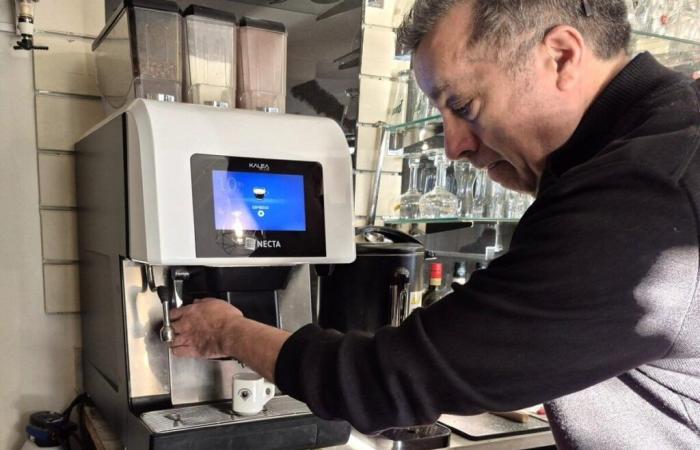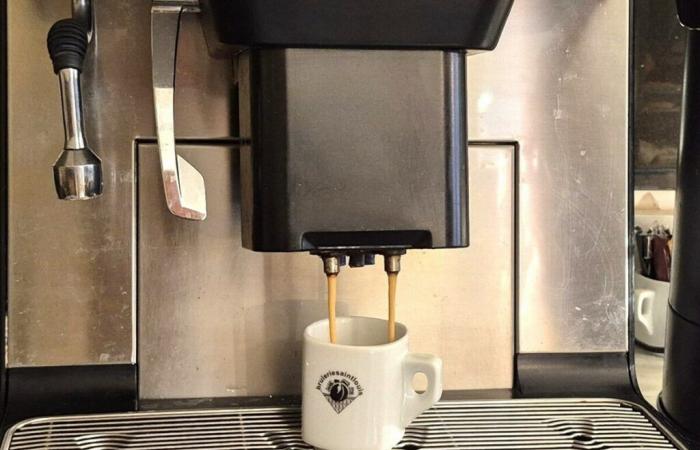The price of coffee worldwide is reaching new heights. Until now, Chaumontese cafe owners have been able to control it by cutting back on their margins. If it were to increase further, they will have to find other solutions to satisfy their customers. Testimonials.
Cocoa, orange, milk, cereals… all raw materials are in the same boat and coffee is no exception to the rule. Its world price is around 3,600 euros per tonne, an increase of 63% in one year and even 143% in 5 years. This situation has never been observed since 2008 and, according to Chaumont cafe owners, an increase is still expected for the start of 2025.
Precisely, among the bar owners, the first concerned are Céline and Sylvain Baumann, for Le Parisien. They are the largest consumers in Chaumont, purchasing between one tonne and 1.1 tonnes of coffee per year. Just behind them, you have to look towards the Moulin Neuf cafeteria.
Coffee for €1.50
Céline Baumann says that, since they have owned the place, in 2019, they have only increased the price of their cup of coffee once, “at the end of Covid, in 2021”. It is, still today and despite the surge in prices, at €1.5.
The couple is waiting to see the evolution of these same prices at the start of 2025 to make decisions. “We will discuss with our roaster and we will try to play on the volumes,” he says. And if the increase is too high, they even consider removing the accompaniment next to the cup so as not to pass on the total amount to their customers.
Sylvain Baumann does not hide the fact that he is even more worried by the tax increase that has been announced. He is thinking of the sugar tax that the government wants to put in place, in the name of public health and especially the excise tax on beers. This is a tax paid to the state on each liter of beer sold and, the stronger the beer, the higher the tax. It will be raised in the next budget (when there is one) in the name, again, of public health and above all to plug the deficits.
When it comes to coffee, his colleagues like the managers of the Bistrot des Halles are going in the same direction. For the moment, they have not passed on the increase in the price of raw materials, but they warn: “this is to be expected because we will not be able to constantly eat away at our margins”.
Reduce the margins
Hadge and Nathalie Mahdjoub, at Mil 9, saw their coffee purchase price increase by 12% in one year. Until now, “we were taking advantage of our margins but if it were to increase further we wouldn’t be able to”. However, their supplier has warned them and it seems difficult to escape this increase. One thing is certain. They will not sacrifice the quality of coffee served to customers with 100% Arabica.
Finally, at K32, given its opening hours, the sale of coffee is insignificant compared to other consumptions. Arnaud Lamotte, its owner, considers coffee to be a loss leader and, even if the price of the raw material were to increase, he would not pass it on to his customers. As he says, for him, “the increase in the price of beer would have more consequences”.
Frédéric Thévenin
The reasons for the surge in prices
The rise in coffee prices is part of a broader context of overall inflation of raw materials, both agricultural and industrial. The cost of transportation, fuel and even paper, essential for packaging, has also increased, adding further pressure on prices.
Furthermore, coffee is one of the first victims of climate change. Brazil, the world’s largest coffee producer, has been hit by extreme weather conditions. A severe drought followed by waves of frost significantly reduced production, affecting around 11% of the country’s arabica crops. Young plants particularly suffered, compromising not only the current harvest but also that of future years.
Also in South America, Colombia, the world’s third largest coffee producer, has experienced major political unrest that has disrupted supply chains. Delivery delays and increased ocean freight costs, already affected by the COVID-19 pandemic, have further aggravated the situation.
To these phenomena, we must add, as Sylvain Baumann points out, global consumption which continues to increase and, in particular, in India which, following poor harvests, is replacing tea with coffee.
Finally, the owner of Le Parisien points out that we must not neglect the global speculation that is taking place in all raw materials. The principle is known: speculators buy millions of tons of coffee, store them and dry up the market while waiting for prices to rise. When they are at their highest, they sell small doses… of coffee at full price.







